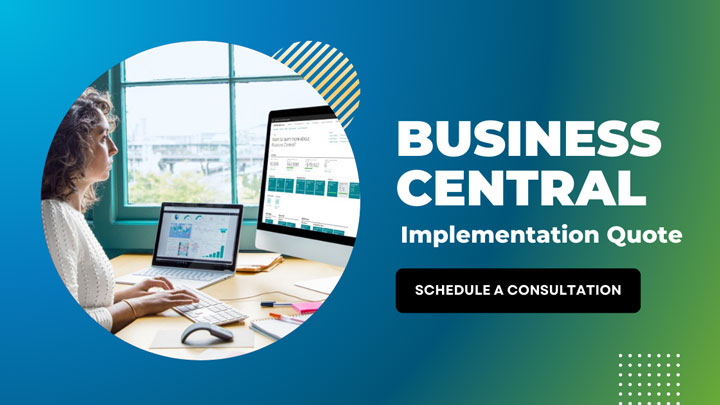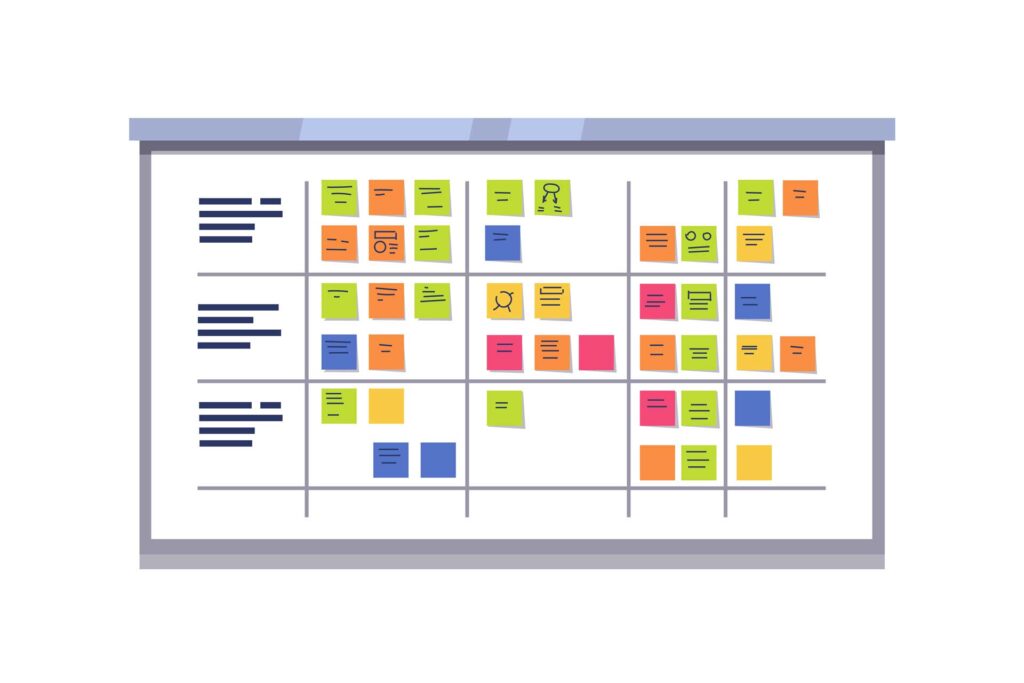Why Your Dynamics 365 Business Central Implementation Approach Matters
There are many ways to approach a Microsoft Dynamics 365 implementation. Through 20+ years of experience, we’ve learned that some strategies lead to better outcomes than others. That’s why we developed our exclusive Business Impact Assessment (BIA) approach—a structured methodology that ensures an on-time, on-budget implementation with minimal risk and no surprises.
Business Impact Assessment for a Successful Business Central Implementation
Microsoft provides a detailed guide for installing and configuring Dynamics 365 Business Central. However, a one-size-fits-all approach rarely works for every business. Our Business Impact Assessment (BIA) is designed to align your implementation with your organization’s unique requirements, ensuring that your investment delivers measurable business value.
How Our Business Impact Assessment Works
Our BIA workshop brings together key stakeholders to define business requirements, processes, project scope, resource commitments, responsibilities, budget, and timeline. This process lays the foundation for a smoother, more predictable Dynamics 365 Business Central implementation.
Our approach is:
- Clear. We help set expectations, minimize risk, and establish a roadmap for success.
- Controlled. We define success criteria, project scope, and business objectives to keep the implementation focused and results-driven.
- Predictable. We identify resource requirements, areas for business process improvement, and accountability structures to ensure project milestones are met.
- Proven. Our structured analysis of business and organizational impact dramatically increases implementation success rates by eliminating common pitfalls.
By using our proprietary BIA solution, your Dynamics 365 Business Central implementation is designed for success from the outset. This methodology eliminates uncertainty, guiding you toward the best technology choices for your current and future business needs.

Our Microsoft Dynamics 365 ERP Implementation Methodology
A successful Microsoft Dynamics 365 ERP implementation goes beyond just software configuration—it requires a well-planned approach to ensure a seamless transition. As a Dynamics 365 implementation partner, our proven methodology focuses on three critical areas:
1. Strategic Planning
We analyze market forces, business drivers, and industry-specific challenges to align the Business Central system with your organizational priorities. By focusing on business outcomes, we ensure that your Dynamics 365 implementation delivers value beyond technology.
2. Operational Readiness
We help you anticipate potential challenges, mitigate risks, and maximize ROI. By proactively addressing common Dynamics 365 pitfalls, we keep the project on track and minimize disruptions.
3. Technical Execution
Our team ensures your project goals align with key success metrics, including process automation, system scalability, and data integrity. We provide hands-on support to define the functional resources and solutions needed to achieve an efficient and effective Dynamics 365 deployment.

Overcoming Common Business Central Implementation Challenges
Many Dynamics 365 Business Central implementations fail due to a lack of proper planning, stakeholder involvement, or technical expertise. Our structured Dynamics 365 Business Central Implementation approach is designed to overcome these challenges, including:
- Lack of user input – We involve key stakeholders from the start.
- Unclear objectives – We define clear success metrics and project goals.
- Lack of executive support – We ensure leadership alignment and buy-in.
- Limited resources – We optimize project planning for efficient execution.
- Changing requirements – We use agile methodologies to adapt dynamically.
- Technology incompetence – Our experts provide hands-on guidance and training.
- Unrealistic expectations – We set achievable milestones and realistic timeframes.
- Complex new technology – We simplify adoption with structured training and user onboarding.
Key Factors for a Successful Dynamics 365 Business Central Implementation
A successful implementation isn’t just about software—it’s about people, processes, and technology working together. Our approach ensures that all three elements are aligned for a smooth transition.
1. Executive Support
Strong executive sponsorship is essential for project success. We work with leadership teams to ensure alignment on objectives, priorities, and change management strategies.
2. Employee Involvement
Your implementation team should include representatives from across the organization who understand business needs and can drive adoption. We facilitate workshops and training sessions to empower your team.
3. Industry-Specific Expertise
Working with an experienced Microsoft Dynamics 365 implementation partner ensures that your system is tailored to your industry’s unique requirements. At 360 Visibility, we specialize in guiding businesses through complex ERP transitions, ensuring seamless adoption and long-term success.
Why Choose 360 Visibility as Your Dynamics 365 Implementation Partner?
Unlike generic ERP providers, 360 Visibility takes a business-first approach to ERP implementation. Our Business Impact Assessment (BIA) methodology ensures that your Dynamics 365 Business Central deployment is aligned with your strategic objectives, delivers measurable business value, and minimizes risk.
What Sets Us Apart?
✅ Proven track record with on-time, on-budget implementations
✅ Structured Business Impact Assessment (BIA) methodology
✅ Hands-on support from certified Dynamics 365 implementation experts
✅ Industry-specific insights to tailor your ERP for maximum impact
✅ Scalable solutions that grow with your business
Unlock the Full Potential of Microsoft Dynamics 365 Business Central
Microsoft Dynamics 365 Business Central is designed for the cloud era, offering greater interdepartmental connectivity, enhanced analytics, and improved operational efficiency. A well-executed Dynamics 365 implementation is the key to unlocking these benefits.
Choosing the right Dynamics 365 implementation partner can make all the difference. Partner with 360 Visibility and experience a clear, controlled, and predictable ERP transformation.
Ready to optimize your ERP implementation? Contact us today to schedule your Business Impact Assessment and take the first step toward a successful Dynamics 365 Business Central implementation.




